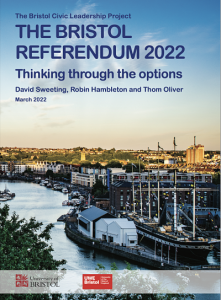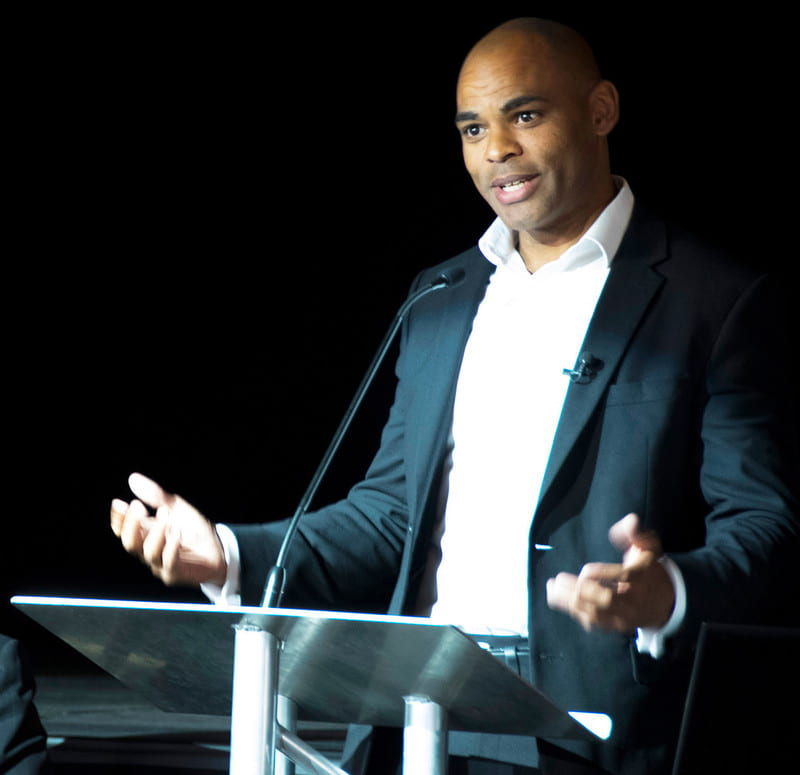UG Social policy with quantitative research methods student, Isabella Oats, discusses key findings from her UG dissertation on the link between subjective well-being and political action with reference to the upcoming UK elections and how the Euros might impact the result.
Tag: Urban and Public Policy Research
The Bristol Referendum 2022: Thinking through the options
 The co-authors of this contribution are members of the Bristol Civic Leadership Research Project: David Sweeting, Senior Lecturer in Urban Studies at the School for Policy Studies, University of Bristol; Robin Hambleton, Emeritus Professor of City Leadership at the University of the West of England, Bristol; and Thom Oliver, Associate Lecturer, University of the West of England, Bristol.
The co-authors of this contribution are members of the Bristol Civic Leadership Research Project: David Sweeting, Senior Lecturer in Urban Studies at the School for Policy Studies, University of Bristol; Robin Hambleton, Emeritus Professor of City Leadership at the University of the West of England, Bristol; and Thom Oliver, Associate Lecturer, University of the West of England, Bristol.
In a referendum on 5 May 2022, the citizens of Bristol will make an important decision about the way our city is governed. (more…)
Developing smart cities: where are citizens’ voices? Learning from Mexico City and Bristol
Ensuring that that our research considers and promotes equality, diversity and inclusion is central to the work we do at the School for Policy Studies. Working in partnership with communities and stake holders to identify research questions that matter and ensuring that studies are co-produced wherever possible helps achieve these aims. This series of blog posts looks at some of the ways what we research and how we go about it incorporates EDI principles.
In this post, Kate Bowen-Viner (Social Policy PhD student) explores how research in the Centre for Urban and Public Policy Research is making smart city innovation more inclusive. (more…)
Social differentiation in later life: the interaction between housing wealth and retirement in the UK and Japan

‘Social differentiation in later life: The 2nd UK-Japan international collaborative workshop exploring the interaction between (housing) wealth and retirement’
By Misa Izuhara, Professor of Social Policy
Who supports you in your transition to retirement? Is it the state, your employer or are you left to yourself to manage? Do you have sufficient financial resources including your own home to choose when to retire? Do you need to have paid work or will you look for different social participation such as volunteering after retirement? The process of retirement is becoming more complex and differentiated in terms of timing and financial resources. Active ageing policies in many advanced economies encourage older workers to remain in the labour market. However, the reasons and opportunities to do so depend on both market and institutions (e.g. retirement age, social security, attitudes of employers) as well as individual capital (e.g. health, skills, financial resources). (more…)
Marvin Rees: Leading a city in turbulent times
Marvin Rees, the Mayor of Bristol, was recently invited to speak to our current MSc Public Policy students on the theme of ‘Leading a City in Turbulent Times’. In this blog, student Isabella Bennett summarises the key points from the lecture.
As the COVID-19 pandemic continues to tear through the globe, the mainstream media focuses on what international leaders are doing. It is very rare that city governance level is analysed in response to various crises thrown up. From this backdrop, Rees suggests that leading a city in turbulent times is just as important as centralised governance. (more…)


